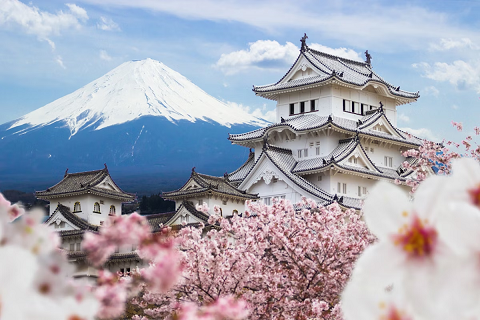Freelancers HUB Empowers Businesses Nationwide with Launch of National SEO Service
May 6, 2025Unlocking Leadership Potential in Nursing -Why Coaching Is the Key to Success
May 6, 2025Moving to Japan sounds like something out of a dream. You imagine quiet mornings sipping matcha under cherry blossoms, late-night ramen runs, and efficient trains that arrive exactly on time. And honestly? A lot of that is true. But in between the Instagrammable moments, there’s real life—and adjusting to that takes time, patience, and a sense of humor.
Whether you’re relocating for work, study, or adventure, here’s a look at what it really means to build a life in Japan as an expat—and how to make it feel like home.
Culture Shock… and Why That’s Okay
Japan is polite. Extremely polite. You’ll probably bow awkwardly the first few weeks and forget to take your shoes off at least once. You’ll learn the hard way that trash sorting isn’t a suggestion—it’s a lifestyle. And at some point, someone will apologize to you because they bumped into you. That’s just how things are here.
You’ll also find beauty in the quietness. In how conversations don’t need to be loud. In the way people wait in line without pushing. In how strangers leave space for each other—on trains, in shops, in life.
Yes, you might feel like an outsider at first. But Japan doesn’t demand you change who you are. It just invites you to observe, respect, and adapt. And honestly, that invitation feels kind of sacred.
Finding a Place to Call Home
Apartment hunting in Japan? Buckle up. Places are small (like really small), paperwork is dense, and deposits can feel like a punch to the wallet. There’s this thing called reikin—a gift to your landlord just for letting you live there. No, it’s not refundable.
But once you settle into your cozy (read: tiny) place, you start to appreciate the little details. The heated toilet seats. The deep bathtubs. The way your building manager smiles at you even when your Japanese is barely understandable.
If you’re not fluent, look for housing through expat-friendly services like GaijinPot or Sakura House. They know the drill and won’t bat an eye if you mess up the contract date.
Staying Connected in a New Land
Imagine arriving in a new country where everything relies on your phone—maps, bank alerts, delivery apps—but you can’t get a local number without a local address… and can’t open a bank account without a local number.
Yeah, it’s a bit of a chicken-and-egg situation.
Luckily, services like Mobal exist specifically for people like us—newcomers. They offer SIM cards without contracts, credit checks, or complicated paperwork. You’ll get English support, and you won’t need to pretend you understand telecom terms in Japanese.
If you plan to stay in the country for a long time, you will probably need a local phone number in Japan for registering with apps, making reservations, and everyday communication. Having a Japan Phone Number makes everything smoother—from verifying your identity on delivery apps to calling your landlord when the washing machine breaks down.
Paperwork and Other Grown-Up Stuff
Right after moving in, head to your city office. Bring your passport, residence card, and patience. You’ll register your address, get health insurance, and possibly sign up for a pension you’re not sure you’ll ever use. Welcome to adulthood, Japan-style.
The healthcare system here is solid—you’ll pay into it monthly, and in return, most of your bills will be covered. Doctors are professional, clinics are spotless, and it’s not unusual to get same-day appointments.
Banking is a bit of a curveball. You might need a personal stamp (hanko), and your name must match exactly what’s on your residence card—no typos allowed. Shinsei and Japan Post Bank are known to be more foreigner-friendly.
Daily Life (Yes, It’s Pretty Great)
Once the logistics are out of the way, life starts to feel… fun.
Convenience stores here are little miracles. You can grab dinner, pay your bills, send a package, and pick up socks—all in the same stop. They’re open 24/7, and yes, the chicken is surprisingly good.
Public transport? Clean, quiet, and so punctual you’ll start timing your walks to the minute. Grocery shopping becomes an adventure (why are there 12 types of soy sauce?), and dining out is affordable and delicious—unless you develop a ¥1,500-a-day sushi habit. Not that I’m speaking from experience.
Making friends takes time. Join a language exchange or hobby group. Say hi at your local gym. Find your people on Meetup or through Facebook expat groups. It won’t happen overnight, but one day you’ll get invited to a karaoke night—and that’s when you’ll know you’re in.

Work Culture: Spoiler—It’s Intense
The work environment here is respectful but demanding. Long hours aren’t just common—they’re expected. You’ll see coworkers staying late out of obligation, not necessity. There’s a strong sense of loyalty to the company and the team.
If you’re working in education, tech, or finance, you’ll find more international setups with flexible attitudes. Still, understanding hierarchy and communication norms will help you blend in.
Japanese business culture values subtlety, group consensus, and not making waves. Speak up, but do it gently. Push for your ideas, but respect the process.
Don’t Forget Your Mental Health
It’s exciting, sure. But being away from everything familiar can feel overwhelming too.
Some days you’ll miss your native language. Or the food. Or the ease of making small talk. That’s normal. It doesn’t mean you’re failing—it means you’re human.
Thankfully, support is out there. Tokyo English Lifeline (TELL) offers counseling and helplines in English. Reddit threads like r/JapanLife are full of real talk and advice. And local expat groups often have mental health resources or at least someone who’ll grab a coffee and listen.
You’re not alone—even if it feels that way sometimes.
Getting Around: Trains, Bikes, and Beyond
Japanese trains deserve the hype. They’re fast, on time, and go just about everywhere. Grab a Suica or Pasmo card and you’re good to go. Want to explore more of the country? A JR Pass is worth the cost for intercity travel.
Biking is common, even in big cities. Just be sure to register your bike (yes, even that part has paperwork). Driving is doable, but keep in mind they drive on the left—and rules are strict.
The Takeaway: Life Here is a Journey
Living in Japan will challenge you, delight you, and sometimes frustrate you. You’ll find yourself marveling at how clean the streets are… and cursing your inability to understand your electric bill. You’ll crave bread that isn’t sweet and then fall in love with melonpan anyway.
It’s a rollercoaster—but a beautiful one.
With a little preparation, the right resources, and an open heart, Japan will start to feel like more than just a place you moved to. It’ll feel like your new normal.

